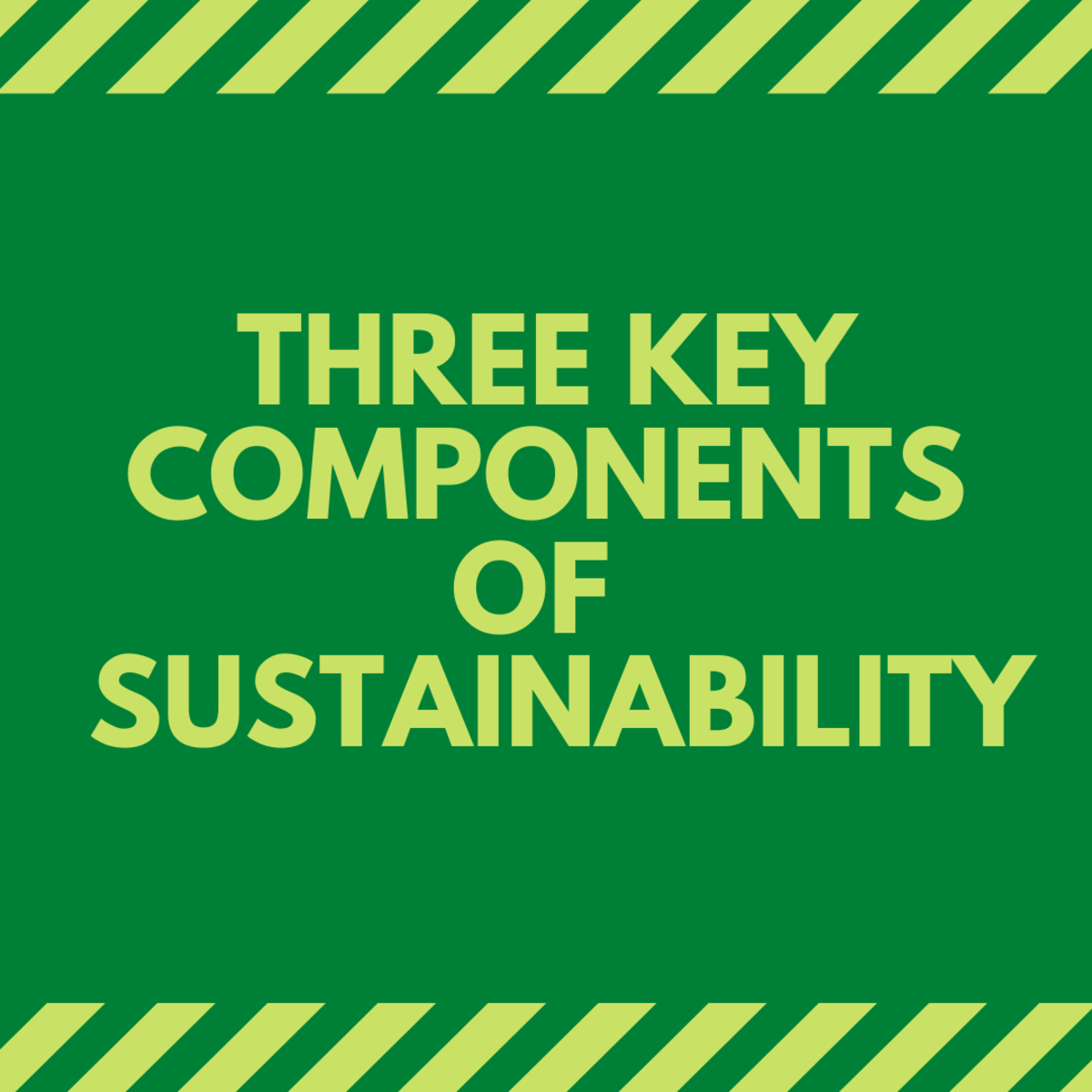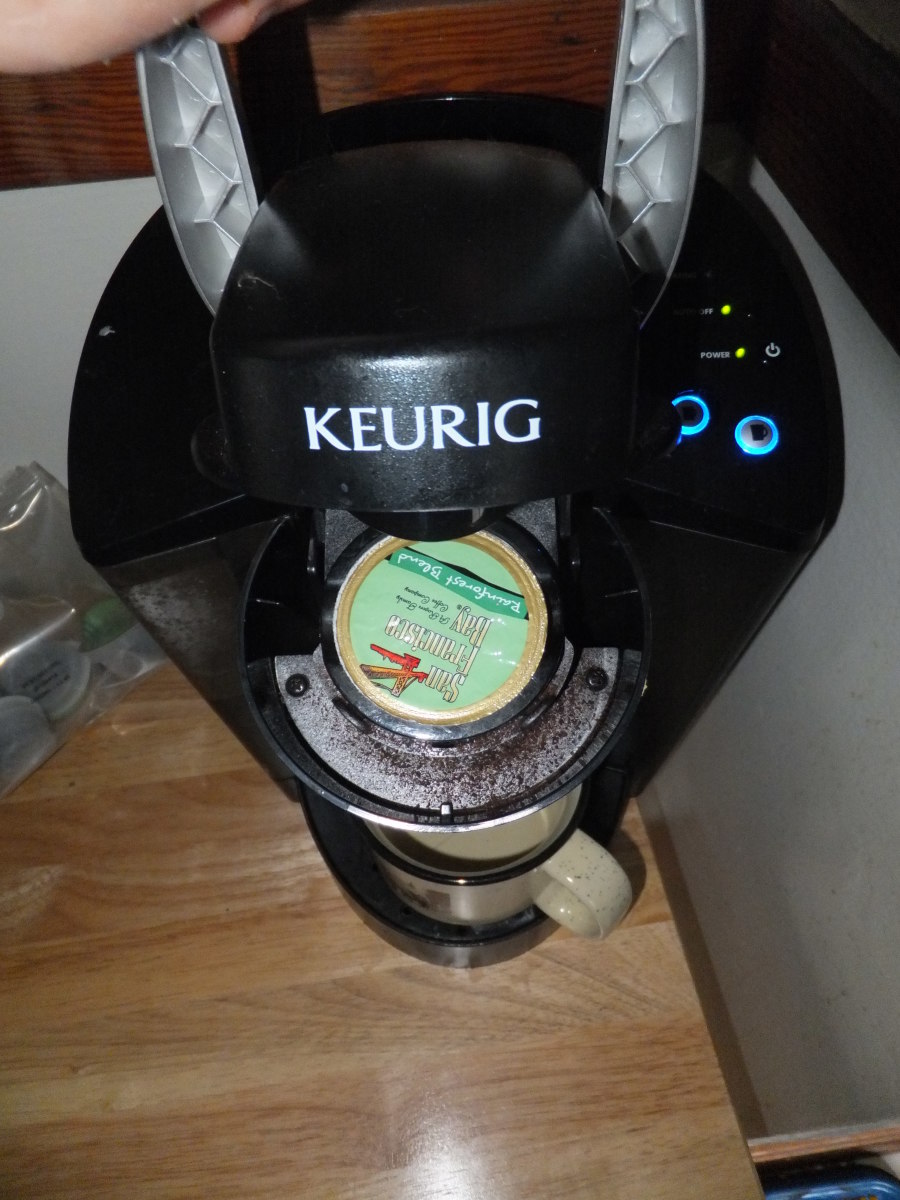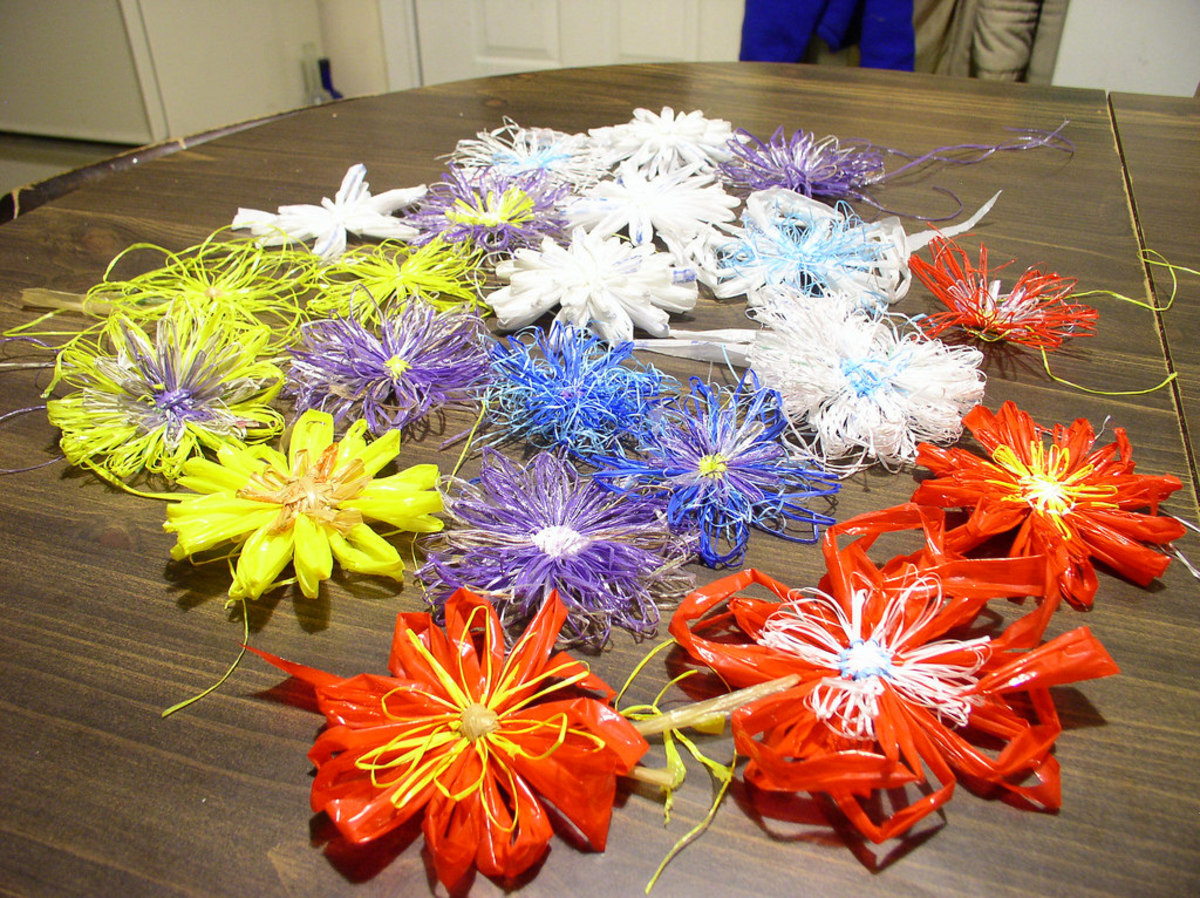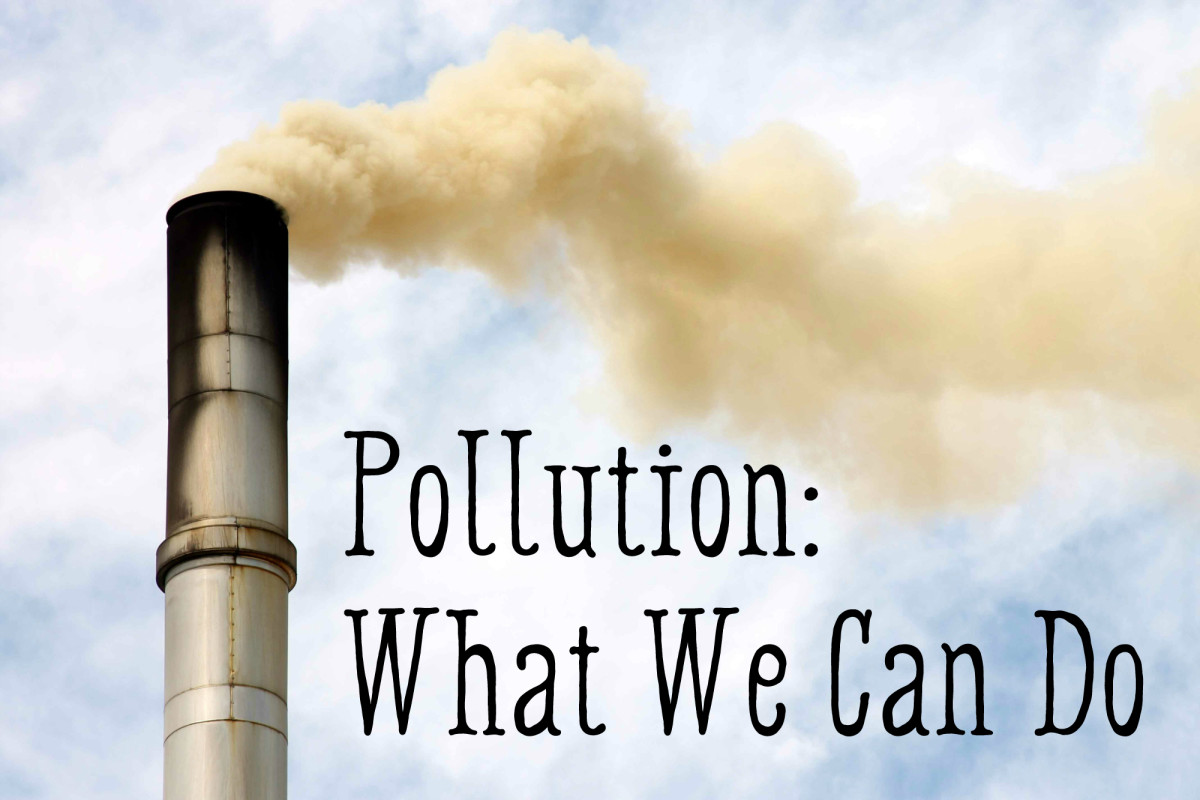How to Live a Greener Life: Tips for Everyday Sustainability

We are inextricably linked to the state of the environment. With every choice we make, we take part in dictating the future of both society and the environment. Even picking out corn these days is no longer a simple task. We are forced to weave through all of our different options from homegrown, organic, "natural", farmers market, etc, etc and ultimately make it to the other side of the swarm of political jargon just to get our hands on an ear of corn. This does not even cover the difficulties in shopping for clothes, paper, water bottles and pretty much everything else we use on a day-to-day basis. With words like "recycled," "natural" and "environmentally friendly" thrown at us from all angles we are forced to pick out the products that are truly what they claim to be and discard the others using these buzz words to reel in the consumer.
At the same time, living a more sustainable life can be extremely easy. There are several simple decisions and life choices you can make right now to have an impact on the future of the world and society. It can be as simple as recycling or purchasing reusable bags - check out these tips to jump on that green movement bandwagon both informed and ready.
EPA's Top Green Power Users
Tip #1: Do Your Research
This is a tricky one - maybe the trickiest one of the bunch. Yet, this is a necessary rule that when enacted, can have major changes on your health, your budget and the environment. Before even purchasing that ear of corn or bundle of shiny new notebooks, do some quick research on the product that your buying and the company that manufactures it. In particular, know your buzz words.
Organic: According to the EPA "Organically grown food is food grown and processed using no synthetic fertilizers or pesticides. Pesticides derived from natural sources (such as biological pesticides) may be used in producing organically grown food."
Natural: Simply means foods that are minimally processed and free of synthetic preservatives and artificial additives. Unlike "organic" foods, these products do not meet any additional food standards outside from the ones applied to all food substances under the USDA.
Environmentally friendly; eco-friendly; green: Broad, vague terms companies use to entice consumers loosely regulated by the FTC.
Companies often use these terms to draw in consumers, who believe products may be 100% recyclable, degradable, produced with minimum fossil fuels, etc. When in fact, these products may not meet all of these guidelines. It is best to do some quick research on a product before purchase.
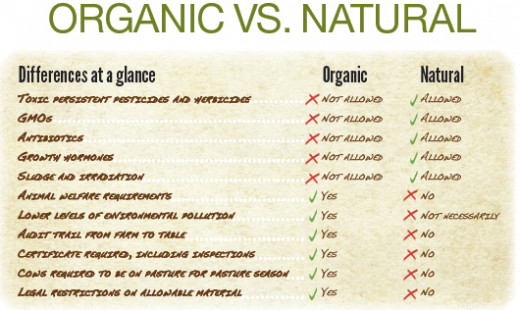
Tip #2: The Three R's
We've all heard them: Reduce, Reuse, Recycle. However, they're often forgotten in everyday use or only half employed. Let's start with the first one, Reduce. This can be as simple as not buying that extra T-shirt you already have in 3 different colors, or using the paper towels wisely. Reducing your waste also reduces your bills. Moving on - Reuse. I'll get into this one in tip #3; however, this is also a simple trick. Reuse old containers, boxes, bags. Donate those clothes that have been sitting in your closet for the past three months. Buy your furniture from your local re-store. Purchase used books. Upsell the things around your house. Reusing saves that trash from the landfill and saves your wallet from an expensive purchase. On to the last one: recycle! This can be as easy as getting a new bin to separate out your recyclables. The key with recycling is not just the first step of actually placing that used paper or tin can in the bin, but the final step of going back and purchasing recycled goods. Next time, try buying recycled paper. Support companies that use recycled goods.
Tip #3: Reusable Storage: Bottles, Bags, Containers
This is a biggie. We often overlook the impact of grabbing a few plastic bags at the grocery store at each trip or taking a water bottle everyday. It is estimated that over 1 million plastic bags are used per minute and 47 billion water bottles are used every year in the US alone. That's a whole ton of carbon emissions, fossil fuels and ultimately waste. I
nvest in a reusable water bottle. These can be pretty cheap for a great quality. In the end, not only will you be reducing waste, you'll also be cutting back on your spending. The price of water from a bottle is 1,000 greater than tap water and more likely than not, the same as tap water whether you think it tastes "gross" or not. Reusable bags have a similar story. Purchase some cheap from your local supermarket and keep them in the car. That way, whenever you run out you'll already have them and have no excuse but to neglect the plastic bag. At the same time, these aren't just helpful for food, use these whenever you go out. Instead of putting the one shirt you purchased in a plastic bag, throw it in your reusable one!
Another neat trick is to avoid the plastic baggies and Styrofoam take-home containers. Employ the use of the plastic containers that you can reuse and even bring your leftovers from your favorite restaurant home in.
Tip #4: Solar Energy
You see that one house in your neighborhood with the solar panels. You drive by it nearly every day and weigh the pros and cons of switching to solar. I'm not telling you to run out this instant to install solar panels on your roof; however, you can utilize this same technology in your home for a bargain. A simple way to do this is use small solar panels to light up your home or charge your small electronics. Last summer, I converted some solar garden lights into mason jar lights to put in the house at night. The cost me a total of $5 each, and cut down on the electricity bill. These can be purchased pre-made, or you can spend an afternoon personalizing your own. Solar energy also provides a perfects means to charge that cell-phone or small electronic. A solar-powered phone charger can be purchased from LL Bean, Radioshack and even Ebay. It's also useful to have in a situation where the grid goes down or the power is out for an extended period of time.
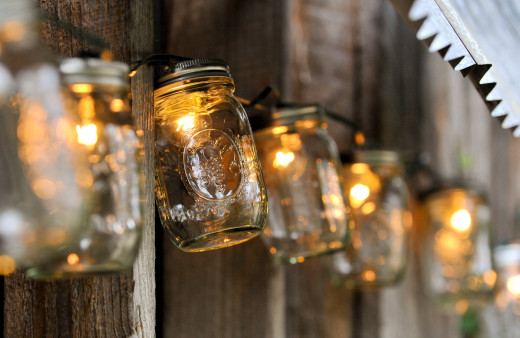
Tip #5: Tell Everyone You Know
Now here's the key: spread the word! In order to help society and the environment, we must inform as many people as we can about tips and tricks to reduce waste and live a more sustainable life. When your friend grabs 12 plastic bags from the grocery store, lend them some of your reusable ones next time and tell them to invest!
Some Finals Tips
Here's some final tips to use everyday!
- Conserve water by letting your server know you don't need anymore water when they come to the table. Millions of tons of water are lost every year in the US by restaurant patrons who leave their half-full glasses on the table.
- Try to avoid purchasing products that aren't entirely necessary. Do you really need that Hello Kitty key chain? I don't know...
- Make sure your home as good insulation. This saves on your energy bill too!
- Buy locally grown food - great for the body and the environment
- Cut down on the plastic goods around the home - instead use reusable plates and silverware


